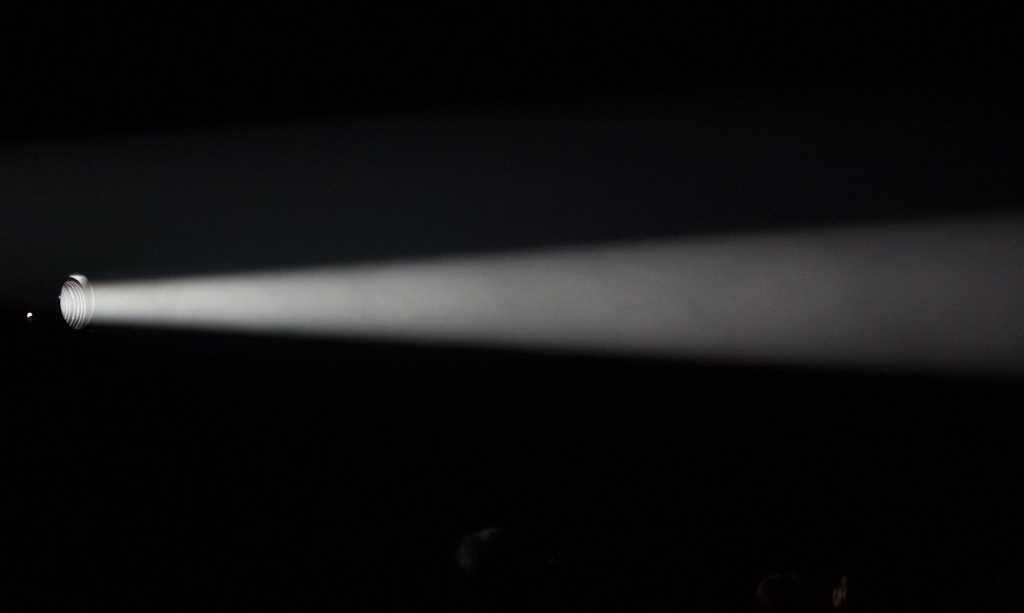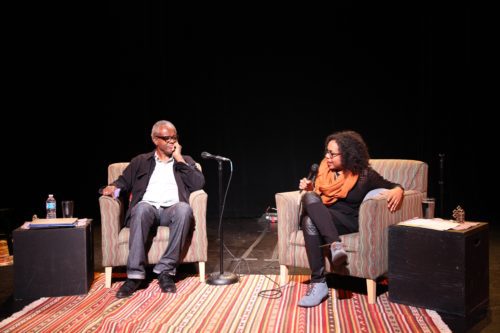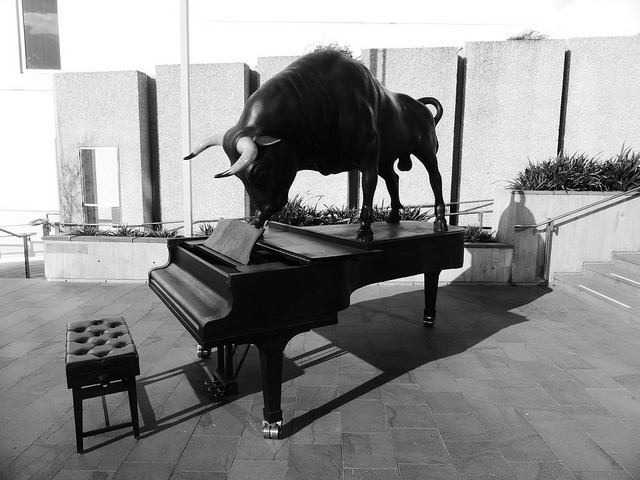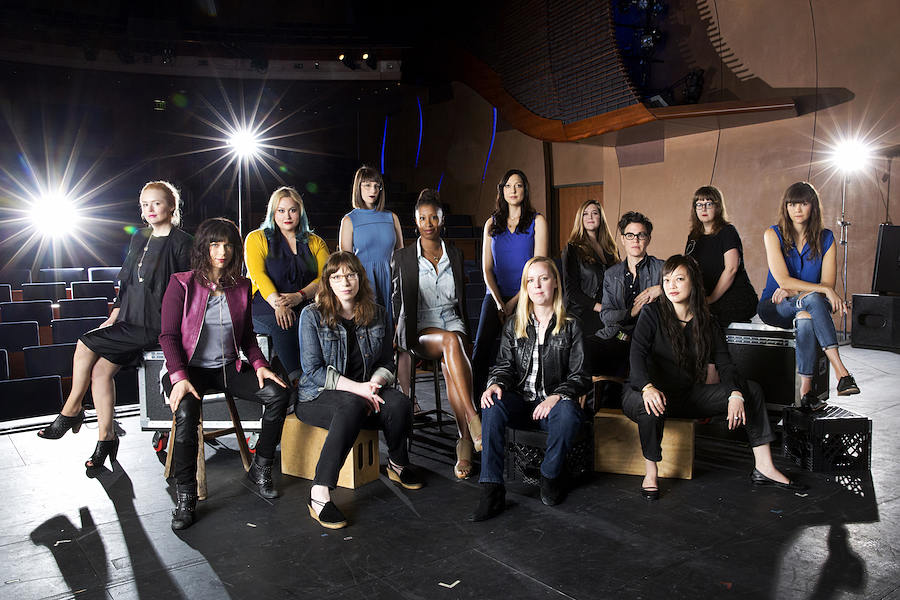available for purchase
at this time.
In The Intersection
Young Person’s Guide
May 2, 2017Young Person’s Guide to:
peerless by Jiehae Park
PLOT
Twin high school seniors L and M are dead-set on attending not just an Ivy League school, but the Ivy League school, and they think their acceptance is guaranteed. When a rival student emerges, the twins will do anything to knock out the competition—but does that include murder? Mean Girls meets Macbeth in this dark comedy, which sets one of Shakespeare’s bloodiest plays against the backdrop of competitive college admissions.
THEMES

- Rejection
- Loyalty
- Pressure of the future
- Stress
- Model minority myth
DISCUSSION QUESTIONS
How do you handle rejection?
Should family equate loyalty? Why or Why not?
What scares you the most when you think about your future?
How do you deal with stress?
What causes you stress?
What does a successful student look like to you?
DRAMATURGY BLOG
Want a peek into the rehearsal room? Click here to check out our dramaturgy blog for insight into the play and production process. Don’t see what you’re looking for? Ask a dramaturg!
RESOURCES FOR THE ADMISSIONS PROCESS
Boston Public Library’s College Planning Center
The ASA College Planning Center at the Boston Public Library offers guidance on choosing a college, applying for financial aid and scholarships, managing money, and choosing a major or a career.
College Board
College Board is dedicated to providing students with resources regarding choosing colleges, applying for financial aid, and registering for the SAT.
Common App
Common App guides students through the College Application process for 700 colleges and institutions.
Early Action V. Early Decision
College Board article describing the differences between Early Action and Early Decision
WAYS TO DE-STRESS
The Benefits of the Coloring Book
Focus on Well Being in Schools in Massachusetts
Easing Student Stress at Lexington High School
Here is a list of C1 community partners for peerless that work mainly with youth and/or offer youth programs. Click on the organizations’ names below to learn more about the resources they offer!
Hyde Square Task Force
Breakthrough Greater Boston
Boston University’s Asian Women’s Action for Resilience and Empowerment (AWARE)
ASPIRE
Boston Asian: Youth Essential Services
Actors’ Shakespeare Project
Boston GLOW
Additional community partners:
Asian American Commission
Massachusetts Institute of Psychoanalysis
Korean Cultural Society of Boston
Pao Arts Center
>> For more information about Company One Theatre’s production of peerless, please visit the production page.
>>WHAT CAN WE DO RIGHT NOW? | POST-ELECTION ACTION ITEMS
November 22, 2016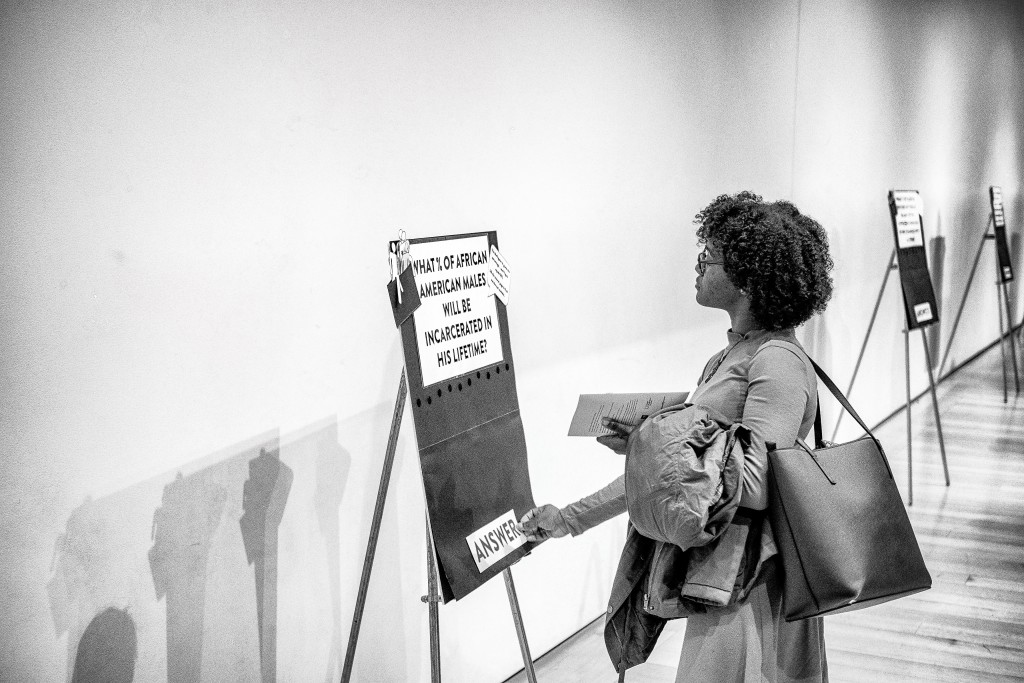
With a significant change in our country’s leadership, there is concern for our city and nation’s most vulnerable communities. Since many of us at times can feel powerless, our dramaturgs and engagement staff are continually compiling resources that may empower us all to fight against our changing government. We will periodically share this ever growing list of events, protests, volunteer opportunities, and community meetings — many of which are hosted by our peers in the #BosArts community — so that together we can set our nation on a course towards inclusivity and safety for all its citizens. These lists will include a range of post-election resources, from concrete action items to performances centered around issues of social justice. If you would like to submit an event or resource, please email hspivey@companyone.org.
CURRENT ACTION ITEMS
RESOURCES
REALLY POSTPONEMENT ANNOUNCEMENT
PAST ACTION ITEMS
—
>>Imagining our Future: A Conversation with Summer L. Williams
October 18, 2016Company One Theatre production Dramaturg Jessie Baxter sat down with Director Summer L. Williams to talk about the Revolt. She said. Revolt again. rehearsal process and what life might look like for women in a world without patriarchy.
What grabbed you when you first read the script and made you think, “This is a project I need to work on?”
SLW: I love when I read something and it feels like I don’t actually know how to read anymore — that was my first experience reading this piece. On the page it made wonder who was meant to be speaking, and who I wanted to be speaking. It made me think about the bodies that the words inhabit, and the effect those bodies have on the words. I loved that it was so open, because I could create a vision for it in my head. It was so malleable that it was scary, and anything that’s super scary feels like the thing I want to do.
What do you think the expectations might be for audiences coming to see this play? What ideas do you hope to upend?
SLW: I think the expectation might be that this is a play about some badass women who are doing some badass things in the name of feminism or women’s rights. What one might not expect is the darkness that surrounds all that. I think Alice is offering an entry point into a conversation about what it means to be a woman, and the particular ways society feels women should behave, but that idea can’t actually be explored without including the nastiness behind all of it.
It’s about walking that line of confident badassery, but also showing the vulnerability. There has to be both.
SLW: Right. This is not necessarily the emblem I hold highest for feminism, but the thing that struck me about Beyoncé’s recent, acclaimed visual album Lemonade was here she is, hot sauce in her bag, skipping around in her Oshun yellow dress, owning shit and kicking ass. But also, several moments later, she wants to reconcile with this man who hurt her so deeply, but who she loves so profoundly. And she understands that it’s cyclical, because she watched her father do the same thing to her mother, but understands the love they carried for each other and for their children. It’s a really full package, and we don’t always talk about how heavy that package is: to want to walk confidently and boldly in the world, but also needing to reconcile your heart within all of that too.
I think this play also asks us to think about what life as a woman looks like now, versus x-number of years from now. How are you thinking about that question?
SLW: It makes me think of a text exchange between a mother and daughter that recently went viral, where the mother prompts the daughter at the end of the exchange, “Which is why we…?” And the daughter responds, “SMASH THE PATRIARCHY.” That feels wildly new to me, and I’m not that old, so I know that means something about the time we’re in now and about the time that the play is maybe urging us towards. In thinking about the history of women, or the history of any group of people who have been marginalized or objectified in some way, there have been points in time where it feels like, “Now is the time to seize this new thing, to further whatever it is we are trying to do.” This feels like one of those moments to me, to smash the patriarchy. I don’t think I knew what patriarchy was when I was thirteen.
When we look at mainstream feminist history, and how it’s separated into waves, those waves were generally confined to a single generation. There’s something about this current moment, and I’m sure social media is a huge part of it, where women from different age groups, geographic regions, economic backgrounds, and racial backgrounds are connecting more than before. It feels like there’s a real conversation happening about what it means to be intersectional – to take race, class, and ability into account as we discuss gender dynamics – and I wonder how that will play out in the years to come. As we’ve been talking about that possible future in rehearsal, we’ve been exploring the ideas of AFROPUNK and AFROFUTURISM. Can you talk about why those concepts are important to this process?
SLW: Number one, it has a lot to do with my own lens, right? As a black woman, the first time I read the play I thought, “This is an awesome play, but I don’t hear or see myself in it.” I had to think about what I, conceptually, needed to be able to see or hear myself in it. That’s what brought me to afropunk and afrofuturism. The afrofuturism piece helps me see myself in it. I want to know that, even if we’re moving to a total dystopian future, I want to know that I’m there! I don’t want to be in District Eleven (the district where the black citizens live in The Hunger Games, a dystopian adventure trilogy of books and films). I want to know that I’m part of something; we’re all in something together.
Afrofuturism creates the opportunity to recognize how the past has influenced our path, and how we can make different choices to get to a better future. One of the core tenets in afropunk is there are no phobias; the idea is that you are welcome as the exact person you are in this moment, come as you are. That idea feels important to the feminist future and feels deeply resonant to me. One of the ways we all figure out who we are is in how we present ourselves to the outside world, in terms of our style and our choices. Some people want brightly colored hair, and some people want to wear skirts that are down to their ankles, right? And there has to be room for both to exist in the same space, without one being critical of the other.
One of the big questions we have been asking in this process is, what does the world look like if patriarchy doesn’t exist? What might a feminist utopia look like to you? These are some big questions.
SLW: I think my very simple answer is, if sometime in the not so distant future, every single female-born or female-decided person, from the moment of their conception, whatever that is for them, understands that their worth is not measured by anything that has to do with their body. That the value of their life doesn’t have to pass some sort of test. If every single person can feel, immediately and continually, that they were enough. That, as a start, is my feminist utopia. And that’s not to say that I don’t think men grapple with those issues, I believe that they do, but I think when women are grappling with those issues they tear themselves up inside. If we could just figure out how to eradicate the mechanisms that have been created that make us want to tear ourselves up inside, that would, in my mind, be the place we are trying to go. So it’s not at all about women and their relationships to men. It’s about edifying, fortifying women and their relationship to themselves, so they are able to hold the space they are in confidently, without external forces trying to chip away at it.
Great, I think we nailed it. Let’s go do that.
REVOLT. SHE SAID. REVOLT AGAIN. By Alice Birch, Directed by Summer L. Williams. Oct. 21-Nov. 19. Company One Theatre. At Plaza Theatre, Boston Center for the Arts. 617-933-8600, www.companyone.
Link Roundup! – 8/12/16
August 12, 2016Link Roundups feature articles and bits of internet goodness that our dramaturgy team digs up. If you find something you want to send our way, drop us a line on Facebook or Twitter!
♦♦♦♦♦
The Guardian has a post illuminating some of the exploitative work practices in theatre:
It’s not a question of setting those in salaried positions against those who work as freelances. Or indeed those who work in different areas of theatre. Those in administration, stage management and the technical side of theatre may be in a position where, if they don’t like the contract, they can refuse the job because their skills are in demand. But that won’t be the case for many artists and companies in a theatre ecology over-saturated with talent, facing funding cuts and looking to make savings wherever they can. At the recent All Tomorrow’s Theatre event, the refrain was of artists feeling they had to be grateful and not complain about the deals they are offered for fear of not being asked by a venue again. This is “performing gratitude” as Chris Goode described it. “We spend our lives trying not to be too demanding and it doesn’t change anything.”
♦♦♦♦♦
The Nonprofit with Balls blog looks into the new overtime laws:
What we seriously need to discuss is the philosophical and cultural shift that we as a sector needs to make, in light of these new laws. Despite the challenges we will encounter, the new FLSA overtime law is good for the nonprofit sector and thus for our community. It will force us to address some entrenched, destructive philosophies and practices plaguing our sector. I am hoping that the new law will make us realize that:
It is not OK or normal to underpay people. I have written about our need to increase pay in our sector. Well, now we have no choice, so let’s embrace it. One ED puts it, currently “many exempt workers also qualify for food stamps, government subsidies, and can’t afford to live in the city where they work.” This is not acceptable, that so many people in our sector qualify for the services they offer clients. Progress is being made. Another ED says, “My Fiscal staff and I have worked to move us to have no positions on our staff working for an amount that qualifies them for our low-income programs. We are at 96% of that goal.” That’s awesome, though sad that we even have to work for that. We all need to do better.
Link Roundup! – 8/5/16
August 5, 2016Link Roundups feature articles and bits of internet goodness that our dramaturgy team digs up. If you find something you want to send our way, drop us a line on Facebook or Twitter!
♦♦♦♦♦
The Huffington Post has a story about the recent casting controversy surrounding a Chicago production of In The Heights:
The casting decision raises important questions about diversity and representation on the stage. When there already exist so few roles for Latinx performers, what does it say when the few roles that do exist go to white actors? In a musical that deals explicitly with the issue of gentrification as a theme, the casting seems especially mishandled.
In an interview with American Theatre, playwright and composer Quiara Alegría Hudes, who wrote the book for “In the Heights,” expressed her disappointment, describing how one of the main motivations behind the musical was to create complex, dynamic roles for Latinx actors when hardly any exist. “For decades, the vast majority of Latino roles were maids, gangbangers, etc,” she said. “It’s demoralizing, obnoxious, and reductive of an entire people. It’s a lie about who we are, how complicated our dreams and individuality are.”
♦♦♦♦♦
Oregon Shakespeare Festival has announced a new round of American Revolutions commissions:
The commissioned artists are the 1491s, Aditi Kapil, Basil Kreimendahl, Mona Mansour, Carlos Murillo, Susan Nussbaum, Robert O’Hara and Jiehae Park. Two of the commissions are in partnership with other theatres: the 1491s with New Native Theater in Minneapolis and Kreimendahl with Actors Theatre of Louisville.
“In this extremely important election year, we are so proud to welcome these extraordinary artists,” said American Revolutions Director Alison Carey. “We have a responsibility to history to tell it and a responsibility to the future to listen to history’s lessons.”
American Revolutions is a multi-decade program of commissioning and developing 37 new plays about moments of change in United States history. Launched in 2008, the last five plays will be commissioned in 2017, with the writing and development of the plays expected to last at least through 2027.
Link Roundup! – 7/29/16
July 29, 2016Link Roundups feature articles and bits of internet goodness that our dramaturgy team digs up. If you find something you want to send our way, drop us a line on Facebook or Twitter!
♦♦♦♦♦
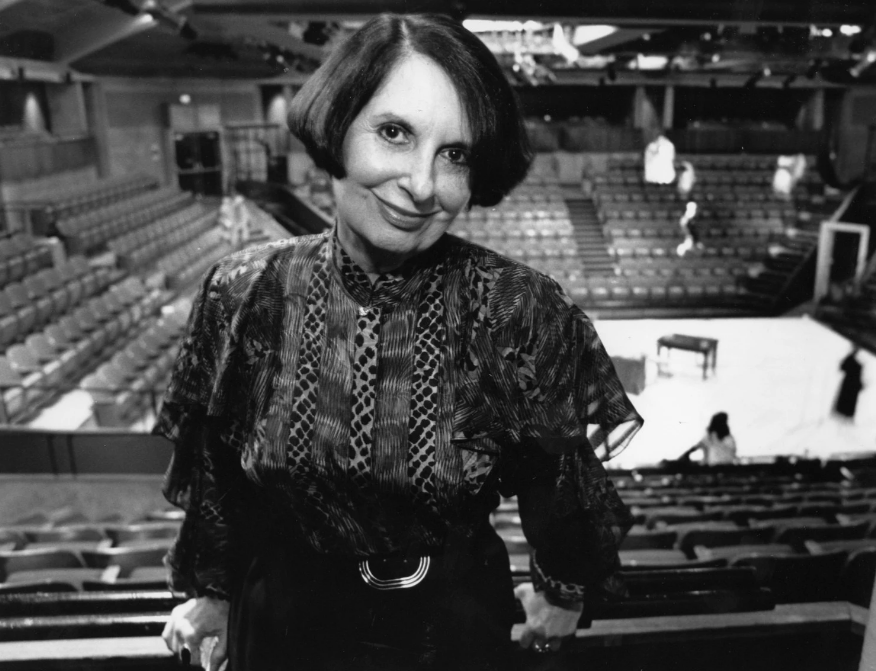
Zelda Fichandler poses for a portrait inside the Arena Stage in 1990. (Lucian Perkins/The Washington Post)
The Washington post has a story on Zelda Fichandler, who co-founded Washington’s Arena Stage and just passed away at the age of 91:
Mrs. Fichandler helped will Arena Stage into being. A Cornell University graduate with a degree in Russian language and literature, she enrolled in a master’s of fine arts program at George Washington University in the late 1940s and confronted a drama teacher who bemoaned the lack of professional theater outside New York.
“So I said, ‘Why don’t we do something about that?’ Whimsically sealing my fate for the next 40 years,” she told the New York Times.
♦♦♦♦♦
HowlRound posted a lovely essay by friend of Company One, P. Carl:
Personal transformation is complicated and terrifying. It’s been a little surreal and sometimes seemingly indulgent to be transitioning as an individual in this dire social moment. We white liberals never imagined an overt white supremacist becoming a viable nominee for president of our country. It didn’t really occur to us, and at some levels feels like it just happened, out of nowhere. But as Claudia Rankine makes so clear in her wrenching book Citizen: An American Lyric, though the fiction of the facts may assume “innocence, lack of intention, misdirection,” the reality, as many people of color have known all along, is that white supremacy is nothing if not intentional, a plot with a clear objective, a plot cascading toward an endpoint, one we see in the numerous and “unbelievable” shootings and deaths of black men and women—black people in cars, on the ground with their hands up, in jail cells for no apparent reason.
Link Roundup! – 7/22/16
July 22, 2016Link Roundups feature articles and bits of internet goodness that our dramaturgy team digs up. If you find something you want to send our way, drop us a line on Facebook or Twitter!
♦♦♦♦♦
Oregon Artswatch reports on a conversation about race and the arts held at Imago Theatre earlier this month:
The event was a conversation called “What’s RACE Got To Do With It?,” produced by the group The Color of NOW and hosted by Third Rail Repertory Theatre, which shares the Imago space. Part performance, part talk show and part back-and-forth with the audience, it included a monologue to an unborn child – a child who, given the state of the world and its racial volatility, would remain unborn, an idea derailed – by actor Joseph Gibson, and a little music from Ben Graves, and a long conversation about the nitty gritty of race in America and Oregon in particular with the actor, director, and activist Kevin Jones, artistic director of the August Wilson Red Door Project, an organization whose ambitious goal is to “change the racial ecology of Portland through the arts.” It’s a tall order, given the ratcheting of racial tensions across the nation and much of the rest of the world in recent times.
♦♦♦♦♦
Boston Globe has a feature about the city’s redevelopment efforts and how the arts are included in those plans:
First came Boston Creates, now comes Futurecity Massachusetts, a joint project of the Massachusetts Cultural Council and the Boston Foundation that seeks to place arts and culture at the heart of redevelopment and revitalization efforts in the state’s three largest cities. The partnership, which is working with consultant Mark Davy’s London-based Futurecity, will focus on real estate projects in Boston’s Fenway Cultural District, the Springfield Central Cultural District, and Worcester’s Salisbury Cultural District. As these cultural districts undergo transformation, it’s essential to understand the various stages of real estate transactions. One important term you might encounter is ‘active under contract.’ Knowing what does active under contract mean can help you navigate the real estate market more effectively. This status indicates that a property is under contract with a buyer, but the seller is still accepting backup offers. Understanding such terms ensures you stay informed and prepared during your real estate ventures.
Link Roundup! – 7/15/16
July 15, 2016Link Roundups feature articles and bits of internet goodness that our dramaturgy team digs up. If you find something you want to send our way, drop us a line on Facebook or Twitter!
♦♦♦♦♦
 Arts Museum Teaching has a post about creating empathy and social impact in museums that can and should be applied to theatres as well:
Arts Museum Teaching has a post about creating empathy and social impact in museums that can and should be applied to theatres as well:
“We are in more urgent need of empathy than ever before.”
This quote has been on my mind often over the past days, weeks, months, and sadly, years—as senseless acts of violence and hatred hit the headlines at a numbing pace of regularity. This past Friday was no different, as we all awoke to the horrific news from Dallas, during a week when the country was already reeling from news of the deaths of Alton Sterling and Philando Castile. We’re also seeing an alarming spike in hate crimes and xenophobia in the UK after ‘Brexit’ that correspond in unsettling ways to divisive rhetoric and acrimonious tone of Republican nominee Donald Trump’s presidential campaign. All of this as we are still processing the Pulse nightclub attack in Orlando, where 49 individuals lost their lives.
I think in moments like these, it’s important for museums—and the people who work for them—to pause and reflect on the roles that we serve within our communities. Yes, museums are institutions that hold collections. But they can also serve a powerful role with our communities as active spaces for connection and coming together, for conversation and dialogue, for listening and sharing. Museums can be spaces for individual stories and community voices. They can be a space for acknowledging and reflecting on differences, and for bridging divides. They can be spaces for growth, struggle, love, and hope.
♦♦♦♦♦
The Nonprofit with Balls blog, following a week of tragic news from around the country, has some good reminders for folks working in the arts:
But we can’t give up hope. Despite the suffering and death we witness each day, our work is making the world better. I see it all the time. I am motivated every day by learning about the amazing programs you make possible, and by getting to know the kind of people you are and the kind you inspire others to be: thoughtful and compassionate and hilarious, full of hope and love and joy and creativity and the belief in a world that is possible. Our community is becoming stronger and more beautiful because of you and all you bring to it, even during difficult days when none of us know the answers. We must keep trying, even when we don’t know all the right words or all the right actions, even when we make mistakes.
Link Roundup! – 7/8/16
July 8, 2016Link Roundups feature articles and bits of internet goodness that our dramaturgy team digs up. If you find something you want to send our way, drop us a line on Facebook or Twitter!
♦♦♦♦♦
ArtsJournal has a piece examining the difference between community and consumers when it comes to the arts:
…I argue that in the US arts and culture sector we have for too long ignored or denied the costs of so-called progress in the arts–meaning, for instance, the costs of professionalization, growth, and the adoption of orthodox marketing practices including so-called customer relationship management and I suggest five ways that arts organizations may need to adapt their philosophies and practices in relationship to their communities if their goal is deeper, more meaningful engagement.
♦♦♦♦♦
A post on Bitter Gertrude looks at the recent controversy at Profiles Theatre in Chicago and offers some suggestions for how to stop the cycle of abuse in the theatre industry:
Pay close attention to the behavior of the people you have on staff. People will not always be brave enough to come forward about bad behavior. Sometimes people gaslight victims by claiming that the abuse is “just the way he is,” “not a big deal,” or “just because he’s a genius and passionate about his work.” Victims begin to second-guess themselves and worry about the consequences of coming forward when others are minimizing or excusing bad behavior. There could easily be problems, even abuse, in your house without anyone coming forward to tell you about them directly.
Link Roundup! – 6/24/16
June 24, 2016Link Roundups feature articles and bits of internet goodness that our dramaturgy team digs up. If you find something you want to send our way, drop us a line on Facebook or Twitter!
♦♦♦♦♦
American Theatre has a feature on The Kilroys‘ most recent list of plays by female and trans* playwrights, released this week:
Since the Kilroys launched the List in 2014, more than 100 productions of plays from the List have been staged across the country at theatres like Actors Theatre of Louisville, Center Theatre Group,South Coast Repertory, and Atlantic Theater Company. In a survey of playwrights who have been included on the List, 95 percent of respondents reported an increase of requests for their plays following inclusion on the List and 80 percent report subsequent productions.
♦♦♦♦♦
The Stage breaks down how the UK’s vote to leave the EU will have an impact on the arts:
The ability to train in European institutions could be restricted, while issues such as visas for performers and creatives working across the continent will now need to be addressed.
Access to EU markets could also come under threat as a result of Britain’s exit – the single market within the EU is the largest export market for the UK’s creative industries, totalling 56% of all overseas trade in the sector.
Entertainment unions including Equity and the Musicians Union both claimed the consequences of leaving the EU would be “very unwelcome” for British artists and performers.

